Home>diy>Building & Construction>What Is A Construction Supervisor


Building & Construction
What Is A Construction Supervisor
Modified: December 7, 2023
Discover the role and responsibilities of a construction supervisor in the field of building construction. Learn how these professionals ensure project success.
(Many of the links in this article redirect to a specific reviewed product. Your purchase of these products through affiliate links helps to generate commission for Storables.com, at no extra cost. Learn more)
Introduction
Welcome to the world of construction supervision! In the realm of building construction, a construction supervisor plays a crucial role in ensuring that projects are completed successfully, on time, and within budget. The construction supervisor is like the captain of a ship, responsible for overseeing every aspect of the construction process and ensuring that all operations run smoothly.
Construction supervisors are the ones who bring the architects’ designs to life. They are the experts who understand the intricacies of construction, the materials involved, and the technicalities that make a structure sturdy and safe. They oversee the construction crew, manage the project timeline, and ensure that all safety protocols are followed to create a safe working environment. Without their expertise and guidance, construction projects would be chaotic and prone to errors and delays.
Construction supervisors are typically involved in various types of projects, ranging from residential buildings to commercial complexes, from infrastructure development to renovations and remodeling. They collaborate closely with architects, engineers, subcontractors, and clients to turn a blueprint into a tangible structure.
A construction supervisor must possess a unique set of skills and qualifications to thrive in this role. They need a deep understanding of construction processes, from the foundation to the finishing touches. They must also have excellent communication and leadership abilities, as they are responsible for managing a team of workers and coordinating with various stakeholders.
In the upcoming sections of this article, we will delve deeper into the responsibilities of a construction supervisor, the skills and qualifications required, and the importance of effective communication in this role. We will also discuss the supervisor’s role in project management, ensuring safety and compliance on construction sites, managing construction crews, budgeting and cost control, quality control and assurance, and problem-solving in construction projects. By the end of this article, you will have a comprehensive understanding of the key role of a construction supervisor in the world of building construction.
Key Takeaways:
- Construction supervisors are the linchpins of successful building projects, overseeing everything from budgets to safety. Their expertise, leadership, and problem-solving skills are crucial for bringing architectural designs to life.
- Effective communication is the cornerstone of a construction supervisor’s role, enabling coordination, issue resolution, and client satisfaction. Their commitment to safety, budget management, and quality control ensures the successful completion of construction projects.
Read more: How To Be A Construction Site Supervisor
Responsibilities of a Construction Supervisor
A construction supervisor carries a multitude of responsibilities throughout the entire construction process. Their primary role is to ensure that the project is executed smoothly, efficiently, and in compliance with all safety and building regulations. Let’s explore some of the key responsibilities of a construction supervisor:
- Project Planning and Coordination: Construction supervisors are responsible for planning and organizing the construction project. They work closely with architects and engineers to create a detailed project schedule and ensure that all necessary resources are available. They coordinate with subcontractors, suppliers, and construction crews to ensure that work is progressing according to plan.
- Team Management: Construction supervisors oversee the construction crews, which may include carpenters, electricians, plumbers, and other skilled tradespeople. They assign tasks, monitor progress, and provide guidance and support to ensure that work is being executed efficiently and to the highest standards.
- Quality Control and Assurance: One of the most critical responsibilities of a construction supervisor is to ensure the quality of work. They conduct regular inspections to identify any deviations from the specifications and take corrective action when necessary. They ensure that all work meets the required standards and code regulations.
- Health and Safety Compliance: Construction sites can be hazardous, and safety is always a top priority. Construction supervisors are responsible for implementing and enforcing safety protocols, conducting regular safety inspections, and ensuring that all workers adhere to safety regulations. They mitigate any potential risks and take immediate action to address any safety concerns.
- Budget and Cost Control: Construction supervisors are responsible for managing the project budget. They track expenses, review contracts, and ensure that the project is staying within budget. They identify cost-saving opportunities and make informed decisions to optimize resources and minimize waste.
- Client and Stakeholder Communication: Construction supervisors act as the primary point of contact for clients, stakeholders, and other parties involved in the construction project. They provide regular updates on the project’s progress, address any concerns or issues, and ensure that expectations are met or exceeded.
These are just a few of the many responsibilities that construction supervisors carry. It’s a demanding role that requires a high level of expertise, organization, and leadership. Construction supervisors must have a holistic understanding of the construction process and be able to effectively balance multiple tasks and responsibilities to ensure the successful completion of the project.
Skills and Qualifications Required
Being a construction supervisor requires a unique combination of technical expertise, leadership skills, and a strong understanding of construction processes. Let’s explore the key skills and qualifications that are necessary for a construction supervisor to excel in their role:
- Construction Knowledge: A construction supervisor must have a deep understanding of construction methods, materials, and processes. They should be knowledgeable about building codes, regulations, and safety protocols. Familiarity with different construction trades and their specific requirements is crucial for effective supervision.
- Project Management: Effective project management skills are essential for a construction supervisor. They need to be able to plan and organize construction projects, create schedules, allocate resources, and ensure that the project is progressing according to plan. They should have a strong attention to detail and the ability to juggle multiple tasks simultaneously.
- Leadership and Communication: Construction supervisors must possess excellent leadership and communication skills. They need to be able to motivate and inspire their team, provide clear instructions, and effectively communicate with clients, subcontractors, and other stakeholders. Strong interpersonal skills are crucial for building effective working relationships.
- Problem-Solving: Construction projects often encounter challenges and unexpected issues. A construction supervisor should have strong problem-solving abilities and be able to think critically to find solutions. They should be proactive in identifying potential issues, developing contingency plans, and taking decisive action to overcome obstacles.
- Decision-Making: Construction supervisors often need to make decisions quickly and under pressure. They should have the ability to analyze situations, weigh multiple factors, and make informed decisions that align with the project’s goals and objectives.
- Technical Skills: In addition to general construction knowledge, a construction supervisor should be familiar with relevant software and technology used in the industry, such as project management software, building information modeling (BIM), and computer-aided design (CAD) software. Proficiency in these tools can help streamline project processes and enhance communication.
- Organizational Skills: Construction supervisors need strong organizational skills to manage resources, track progress, and ensure that deadlines are met. They should be able to prioritize tasks, manage time effectively, and maintain accurate documentation and records.
These skills and qualifications lay the foundation for a successful career as a construction supervisor. However, it is important to note that experience and continuous learning are also crucial for professional growth in this field. Construction supervisors must stay updated with industry trends, regulations, and advancements in construction techniques to ensure they are equipped to handle the challenges of the ever-evolving construction industry.
Construction Supervisor’s Role in Project Management
Project management is a critical aspect of construction, and the construction supervisor plays a pivotal role in overseeing and managing the project from start to finish. Let’s explore the key responsibilities of a construction supervisor in project management:
- Planning and Scheduling: One of the primary responsibilities of a construction supervisor is to create a comprehensive project plan and schedule. They work closely with architects, engineers, and other stakeholders to develop a detailed timeline that outlines the sequence of construction activities. The supervisor ensures that all tasks are completed in a logical order and that resources are allocated efficiently.
- Resource Allocation: Construction supervisors are responsible for allocating resources, including materials, equipment, and manpower. They must ensure that the necessary resources are available at the right time and in the right quantities to keep the project on schedule. Efficient resource allocation helps maximize productivity and minimize delays.
- Budget Management: Construction supervisors play a key role in managing the project budget. They monitor costs, track expenses, and ensure that the project stays within the allocated budget. They collaborate with the project team and stakeholders to find cost-effective solutions, negotiate contracts, and make informed decisions that optimize resources and minimize waste.
- Team Leadership: Construction supervisors lead and manage the construction team, including subcontractors and laborers. They assign tasks, monitor progress, and provide guidance to ensure that work is executed efficiently and to the highest standards. They foster a collaborative and positive work environment, fostering teamwork and productivity.
- Quality Control: Ensuring quality is an integral part of project management, and construction supervisors are responsible for maintaining high-quality standards throughout the construction process. They conduct regular inspections, review workmanship, and address any issues or deviations from the specifications. They work closely with the project team to address any quality-related concerns promptly.
- Risk Management: Construction projects are not without risks, and construction supervisors play a role in identifying, assessing, and managing these risks. They conduct risk assessments, implement risk mitigation strategies, and ensure compliance with safety regulations to minimize the likelihood of accidents or delays.
- Communication and Collaboration: Effective communication is crucial in project management, and construction supervisors act as a central point of contact for all stakeholders. They communicate project updates, timelines, and progress reports to clients, architects, engineers, and subcontractors. They also facilitate collaboration and coordination among the various teams involved in the project.
The construction supervisor’s role in project management is multifaceted and requires a blend of technical knowledge, leadership skills, and effective communication abilities. Their involvement from the initial planning stages to the final completion ensures that the project is executed smoothly, efficiently, and in alignment with the project objectives.
Importance of Effective Communication for Construction Supervisors
Effective communication is a vital skill for construction supervisors, as it plays a crucial role in ensuring the success of a construction project. Clear and efficient communication enables construction supervisors to coordinate workflows, convey expectations, address issues, and build strong relationships with clients, teams, and stakeholders. Here are some key reasons why effective communication is essential for construction supervisors:
- Coordination and Collaboration: Construction projects involve multiple teams, including architects, engineers, subcontractors, and laborers. Effective communication allows construction supervisors to coordinate activities, share information, and ensure everyone is on the same page. It helps in managing schedules, resource allocation, and sequencing of tasks, leading to increased productivity and streamlined workflows.
- Managing Expectations: Clear and open communication with clients is crucial to managing expectations. Construction supervisors need to communicate project progress, any deviations from the original plan, and potential challenges along the way. By setting realistic expectations and providing regular updates, construction supervisors build trust with clients and foster better relationships, ensuring client satisfaction.
- Issue Resolution: During the construction process, issues and conflicts may arise. Effective communication allows construction supervisors to identify and address these issues promptly. By actively listening to team members, stakeholders, and clients, construction supervisors can understand concerns, find solutions, and prevent potential delays or disputes.
- Safety and Compliance: Safety is a top priority on construction sites. Construction supervisors must communicate safety protocols, provide training, and ensure that all workers follow safety guidelines. Effective communication helps prevent accidents and promotes a culture of safety and compliance with regulations and standards.
- Building Relationships: Construction supervisors interact with a variety of stakeholders, including clients, subcontractors, suppliers, and regulatory authorities. With effective communication skills, construction supervisors can establish strong working relationships based on trust, respect, and clear communication. These relationships can lead to future collaborations and referrals.
- Managing Change and Adaptation: Construction projects often require adjustments due to unforeseen circumstances or changes in client requirements. Effective communication helps construction supervisors relay these changes to the team, ensuring seamless adaptation and minimizing disruptions. By keeping everyone informed, construction supervisors can better manage change and maintain project progress.
Overall, effective communication is crucial for construction supervisors to successfully manage construction projects. It enables coordination, collaboration, issue resolution, and the establishment of strong relationships. By practicing open, transparent, and timely communication, construction supervisors can create a positive work environment, enhance productivity, and deliver successful construction projects.
Read more: What Is A Wardrobe Supervisor
Ensuring Safety and Compliance on Construction Sites
Safety is of paramount importance on construction sites, and construction supervisors play a vital role in ensuring the safety of workers and compliance with all relevant regulations and standards. By implementing proper safety protocols and maintaining a culture of safety, construction supervisors can create a secure work environment. Here are key aspects of ensuring safety and compliance on construction sites:
- Developing Safety Policies and Procedures: Construction supervisors are responsible for developing and implementing comprehensive safety policies and procedures. They analyze potential hazards and risks associated with the project and create guidelines and protocols to mitigate those risks. The policies should cover areas such as personal protective equipment (PPE) requirements, equipment safety, emergency response plans, and hazard communication.
- Training and Education: Construction supervisors organize safety training sessions for workers, ensuring that they are aware of potential risks and how to mitigate them. These training sessions should cover topics such as proper use of equipment, safe work practices, fall protection, and emergency procedures. Ongoing education and refresher courses help reinforce safety awareness and provide updated information on new regulations or safety techniques.
- Regular Safety Inspections: Construction supervisors conduct routine safety inspections to identify potential hazards, unsafe conditions, or non-compliance with regulations. They inspect scaffolding, machinery, electrical systems, and other areas to ensure they meet safety standards. Any issues or deviations are immediately addressed to prevent accidents or injuries.
- Promoting Safety Culture: Construction supervisors play a pivotal role in fostering a culture of safety on construction sites. They lead by example and encourage all workers to prioritize safety. By consistently reinforcing safety practices, providing feedback, and recognizing and rewarding safe behavior, construction supervisors create an environment where safety becomes an integral part of every worker’s mindset.
- Ensuring Compliance with Regulations and Standards: Construction supervisors must stay up to date with all relevant building codes, regulations, and industry standards. They ensure that the construction site adheres to these regulations and that all permits and licenses are obtained. This includes compliance with electrical, fire, and environmental codes, as well as proper waste disposal procedures.
- Monitoring and Documentation: Construction supervisors monitor and document safety-related activities on the construction site. They keep records of safety inspections, training sessions, incidents, and near misses. This documentation serves as a valuable resource for tracking and addressing safety concerns, as well as for meeting regulatory requirements.
By prioritizing safety and compliance, construction supervisors help prevent accidents, injuries, and costly delays on construction sites. Their role in creating a safe work environment, providing proper training, and enforcing safety protocols ensures that everyone involved in the construction project can work in a secure and compliant manner.
A construction supervisor is responsible for overseeing all aspects of a construction project, including managing workers, ensuring safety and quality, and coordinating with other professionals. Effective communication and strong leadership skills are essential for success in this role.
Managing and Coordinating Construction Crews
Managing and coordinating construction crews is a critical responsibility of construction supervisors. Effective management and coordination ensure that construction projects run smoothly, tasks are completed on time, and the project stays within budget. Here are key aspects of managing and coordinating construction crews:
- Assigning Tasks: Construction supervisors allocate tasks to different crews based on their expertise and the project’s requirements. They consider the skills and experience of the workers and assign them to the appropriate tasks, ensuring that each crew is staffed with the necessary skills to complete their assigned work efficiently.
- Providing Clear Instructions: Construction supervisors must provide clear and concise instructions to the crews. They explain the scope of work, expected quality standards, and project timelines. Clear instructions help avoid confusion, prevent misunderstandings, and ensure that the crews understand what is expected of them.
- Monitoring and Supervision: Construction supervisors closely monitor the progress of each crew and provide ongoing supervision. They ensure that the work is executed according to specifications and quality standards. Regular site visits and inspections allow supervisors to address any issues promptly, offer guidance, and provide timely feedback to the crews.
- Coordinating Workflows: Construction supervisors coordinate the workflows of different crews to ensure smooth progress. They oversee the sequencing of tasks, ensuring that each crew can proceed with their work without causing delays or conflicts with other crews. Effective coordination optimizes resource utilization, minimizes downtime, and eliminates potential bottlenecks in the construction process.
- Problem-solving and Conflict Resolution: Construction supervisors are responsible for resolving any issues or conflicts that may arise between crews. They mediate disputes, identify solutions, and foster a collaborative work environment. Effective problem-solving skills and the ability to proactively address conflicts help mitigate delays and maintain a harmonious work atmosphere.
- Ensuring Safety and Compliance: Construction supervisors ensure that all crews follow safety protocols and adhere to safety regulations. They oversee the use of personal protective equipment (PPE) and promote a culture of safety within the crews. Construction supervisors monitor compliance with building codes, environmental regulations, and other legal requirements to ensure that the work is completed in full compliance.
- Team Development and Motivation: Construction supervisors foster a positive work environment, encouraging teamwork and motivating the crews to perform at their best. They provide feedback, recognize achievements, and offer training and development opportunities. Creating a supportive and empowering work environment leads to increased morale, productivity, and job satisfaction among the construction crews.
By effectively managing and coordinating construction crews, construction supervisors ensure that the project progresses smoothly, tasks are completed efficiently, and quality standards are met. Their role in guiding, supervising, and motivating the crews is integral to the success of construction projects.
Budgeting and Cost Control for Construction Projects
Budgeting and cost control are vital aspects of successful construction projects, and construction supervisors play a crucial role in managing the financial aspects of the project. By effectively budgeting and controlling costs, construction supervisors ensure that projects are completed within the allocated budget and maximize the efficient use of resources. Here are key considerations for budgeting and cost control in construction projects:
- Thorough Project Cost Estimation: Construction supervisors work closely with the project team to develop a detailed cost estimation for the entire project. This includes material costs, labor costs, equipment costs, and other expenses. Thorough cost estimation at the project planning stage helps set a realistic budget and anticipates potential cost overruns.
- Resource Allocation and Management: Construction supervisors allocate resources based on accurate cost estimates and the project timeline. They ensure that resources, such as labor, materials, and equipment, are effectively managed and utilized. Effective resource allocation helps prevent unnecessary wastage and ensures the project stays within budget.
- Vendor Selection and Negotiation: Construction supervisors play a role in selecting vendors and subcontractors for the project. They assess and evaluate proposals, negotiate contracts, and ensure competitive pricing. Effective vendor selection and negotiation processes contribute to cost control and optimize project budget utilization.
- Tracking and Monitoring Expenses: Construction supervisors diligently track and monitor project expenses throughout the construction process. They keep detailed records of all costs incurred, including material purchases, labor hours, equipment rentals, and subcontractor payments. Real-time expense tracking allows them to identify any budget deviations early and take appropriate corrective actions.
- Cost-Effective Decision Making: Construction supervisors make informed decisions to optimize project costs. They evaluate alternatives, assess their impact on the project budget, and consider long-term value and sustainability. By making cost-effective decisions, construction supervisors minimize unnecessary expenses and maximize the value delivered by the project.
- Variance Analysis and Reporting: Construction supervisors conduct variance analysis to compare actual project costs against the planned budget. They identify any significant deviations and analyze the root causes behind them. Through regular reporting, they provide detailed financial insights to stakeholders and project management, enabling proactive decision-making and corrective actions.
- Change Order Management: Construction projects often encounter changes or unforeseen circumstances that impact the project budget. Construction supervisors are responsible for managing change orders effectively. They assess the impact of changes on the budget and evaluate alternatives to minimize any negative financial impacts. By effectively managing change orders, construction supervisors prevent cost overruns and protect the project budget.
Effective budgeting and cost control by construction supervisors are crucial to the success of construction projects. By carefully managing project costs, construction supervisors optimize resource utilization, prevent financial risks, and ensure that projects are completed within budget while maintaining the desired level of quality.
Overseeing Quality Control and Assurance
Ensuring high-quality standards is essential in construction projects, and construction supervisors play a crucial role in overseeing quality control and assurance. By implementing effective quality control measures and maintaining a focus on quality assurance, construction supervisors ensure that projects are completed to the highest standards and meet client expectations. Here are key considerations for overseeing quality control and assurance:
- Establishing Quality Standards: Construction supervisors work closely with project stakeholders to define and establish quality standards for the project. These standards encompass various aspects such as materials, workmanship, installation techniques, and compliance with building codes and regulatory requirements.
- Quality Control Inspections: Construction supervisors conduct regular inspections to ensure that work is being executed according to the established quality standards. They review workmanship, validate compliance with specifications, and identify potential issues or deviations. These inspections occur throughout the various stages of the construction process, including foundation, framing, electrical, plumbing, and finishing work.
- Testing and Verification: Construction supervisors coordinate and oversee required tests and verifications to validate the quality of materials, structural integrity, and performance of systems. This may include soil testing, concrete strength testing, water pressure testing, or inspection of installed components, such as fire safety systems and insulation.
- Documentation and Reporting: Construction supervisors maintain detailed documentation of quality control activities, including inspection reports, test results, and deviations from specifications. This information serves as a reference and ensures transparency and accountability in addressing any quality-related issues. They also provide regular reports on quality performance to project stakeholders and management.
- Nonconformance Management: When deviations or nonconformances are identified, construction supervisors take prompt action to address and rectify the issues. They work closely with the responsible parties, such as subcontractors or suppliers, to establish corrective measures. Constructive communication and collaboration help prevent recurring issues and maintain quality standards.
- Continuous Improvement: Construction supervisors strive for continuous improvement in quality control and assurance. They monitor feedback, review lessons learned from previous projects, and stay updated with industry best practices. By adopting innovative construction techniques, leveraging new technologies, and implementing lessons learned, construction supervisors drive constant improvement in quality performance.
- Client Satisfaction: Construction supervisors recognize that quality control and assurance go hand in hand with client satisfaction. They understand the importance of meeting or exceeding client expectations regarding quality standards. By consistently delivering high-quality results, construction supervisors build trust with clients, enhance their reputation, and foster lasting relationships.
Overseeing quality control and assurance is a vital responsibility of construction supervisors. By setting and maintaining high-quality standards, conducting inspections and tests, addressing nonconformances, and continuously improving processes, construction supervisors ensure that construction projects are completed to the highest standard of quality.
Read more: How Much Do Construction Supervisors Make
Dealing with Challenges and Problem-Solving in Construction Projects
Construction projects are complex endeavors that often present various challenges and unexpected obstacles. Construction supervisors play a critical role in dealing with these challenges and solving problems to ensure the successful completion of projects. Their ability to navigate through difficulties and find effective solutions is essential. Here are key considerations for dealing with challenges and problem-solving in construction projects:
- Identifying and Anticipating Challenges: Construction supervisors proactively identify potential challenges and risks that may arise during the project. By conducting thorough project assessments and considering factors such as site conditions, weather, availability of resources, and regulatory requirements, supervisors can anticipate challenges and develop contingency plans.
- Collaborative Approach: Construction supervisors foster a collaborative approach, involving the project team, subcontractors, and other stakeholders in problem-solving efforts. By leveraging the knowledge and expertise of all parties involved, supervisors can gather different perspectives, brainstorm creative solutions, and ensure the best course of action to overcome challenges.
- Effective Communication: Communication plays a vital role in problem-solving. Construction supervisors facilitate open and transparent communication channels among team members. They actively listen to concerns, gather relevant information, and communicate effectively to convey instructions, alternative approaches, and progress updates. Clear and timely communication helps in resolving issues promptly and minimizing the impact on project timelines.
- Analytical Thinking and Decision-Making: Construction supervisors employ analytical thinking and decision-making skills to assess challenges objectively and make informed choices. They evaluate potential solutions, considering factors such as time, cost, quality, and safety. By weighing the pros and cons, supervisors make decisions that align with project objectives and maximize the likelihood of success.
- Flexible Adaptability: Construction supervisors must have a flexible mindset to adapt to changing circumstances. They understand that unexpected challenges are inevitable in construction projects. By maintaining a proactive and adaptable approach, supervisors can quickly adjust plans, reallocate resources, and find alternative solutions when facing unexpected obstacles.
- Learning from Lessons and Best Practices: Construction supervisors continuously learn from previous experiences and industry best practices. They identify patterns, both positive and negative, analyze lessons learned, and apply them to current and future projects. By leveraging knowledge gained from past challenges, supervisors can implement strategies to mitigate risks and maintain project progress.
- Stakeholder Management: Construction supervisors engage with stakeholders to manage expectations and address challenges effectively. They maintain open lines of communication with clients, subcontractors, suppliers, and regulatory authorities. By understanding and addressing stakeholder concerns, supervisors build trust, foster collaboration, and facilitate problem-solving efforts.
Dealing with challenges and problem-solving is a fundamental part of the construction supervisor’s role. By using a proactive and collaborative approach, effective communication, analytical thinking, adaptability, and continuous learning, construction supervisors can navigate through obstacles, find practical solutions, and ensure the successful completion of construction projects.
Conclusion
In the world of construction, the role of a construction supervisor is integral to the successful completion of projects. From overseeing the construction crews to managing budgets, ensuring safety compliance, and maintaining quality control, construction supervisors play a crucial role in every aspect of the construction process.
The responsibilities of a construction supervisor are vast and varied, requiring a combination of technical expertise, leadership skills, effective communication, and problem-solving abilities. They must possess a deep understanding of construction processes and be able to coordinate and manage multiple tasks and teams simultaneously.
Effective communication is a cornerstone of the construction supervisor’s role. They must be adept at conveying expectations, coordinating workflows, and building relationships with clients, subcontractors, and stakeholders. Clear and open communication ensures that construction projects progress smoothly and that everyone involved is on the same page.
Safety and compliance are paramount on construction sites, and construction supervisors are responsible for developing and implementing safety protocols, conducting inspections, and mitigating potential risks. By maintaining a focus on safety and ensuring compliance with regulations and standards, construction supervisors create a secure work environment for all workers.
Additionally, construction supervisors play a vital role in managing budgets and controlling costs. From accurate cost estimations to resource allocation, vendor selection, and ongoing monitoring of expenses, they strive to keep projects within budget while maximizing the efficient use of resources.
Overseeing quality control and assurance is another key responsibility of construction supervisors. They establish quality standards, conduct inspections, and ensure compliance with specifications and codes. By maintaining a commitment to high-quality workmanship, construction supervisors deliver projects that meet or exceed client expectations.
Furthermore, construction supervisors tackle challenges head-on and employ problem-solving skills to find effective solutions. Their ability to anticipate potential issues, collaborate with teams, analyze problems, and make informed decisions helps to keep projects on track and overcome obstacles along the way.
In conclusion, construction supervisors are essential figures in the world of building construction. Their expertise, leadership, and attention to detail contribute to the successful completion of construction projects. By overseeing construction crews, managing budgets, ensuring safety and compliance, maintaining quality control, and problem-solving, construction supervisors go above and beyond to bring architectural plans to life and create remarkable structures that stand the test of time.
Frequently Asked Questions about What Is A Construction Supervisor
Was this page helpful?
At Storables.com, we guarantee accurate and reliable information. Our content, validated by Expert Board Contributors, is crafted following stringent Editorial Policies. We're committed to providing you with well-researched, expert-backed insights for all your informational needs.

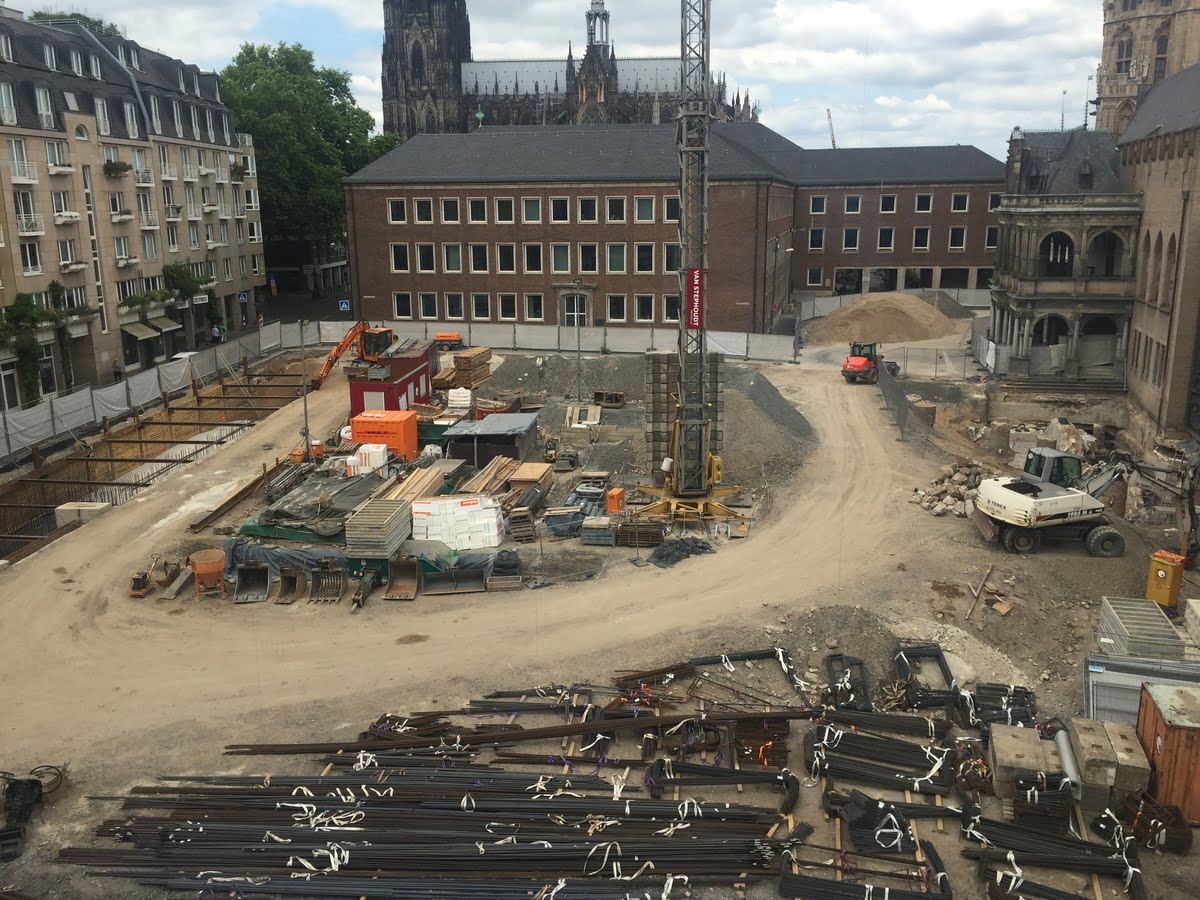


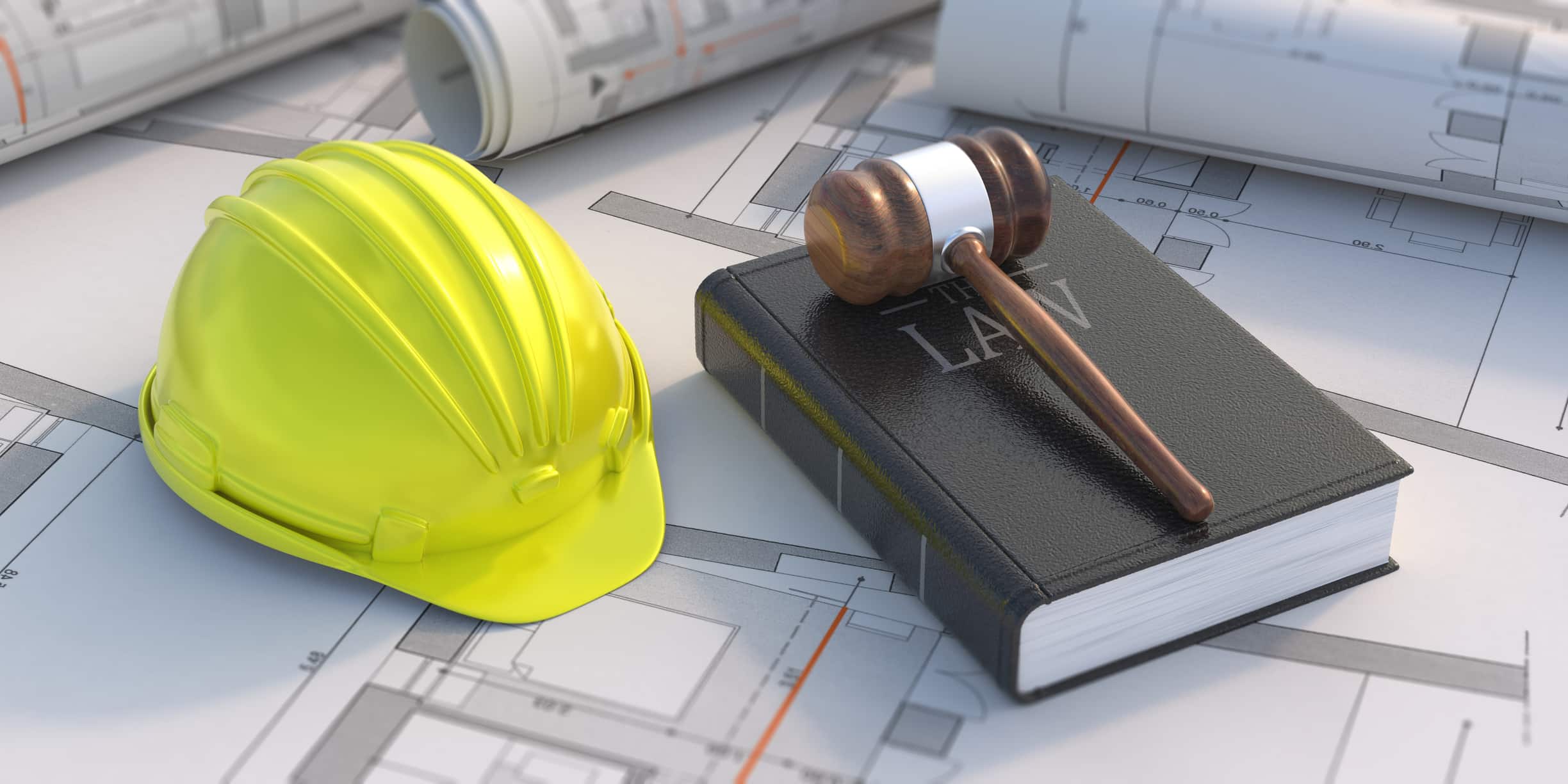
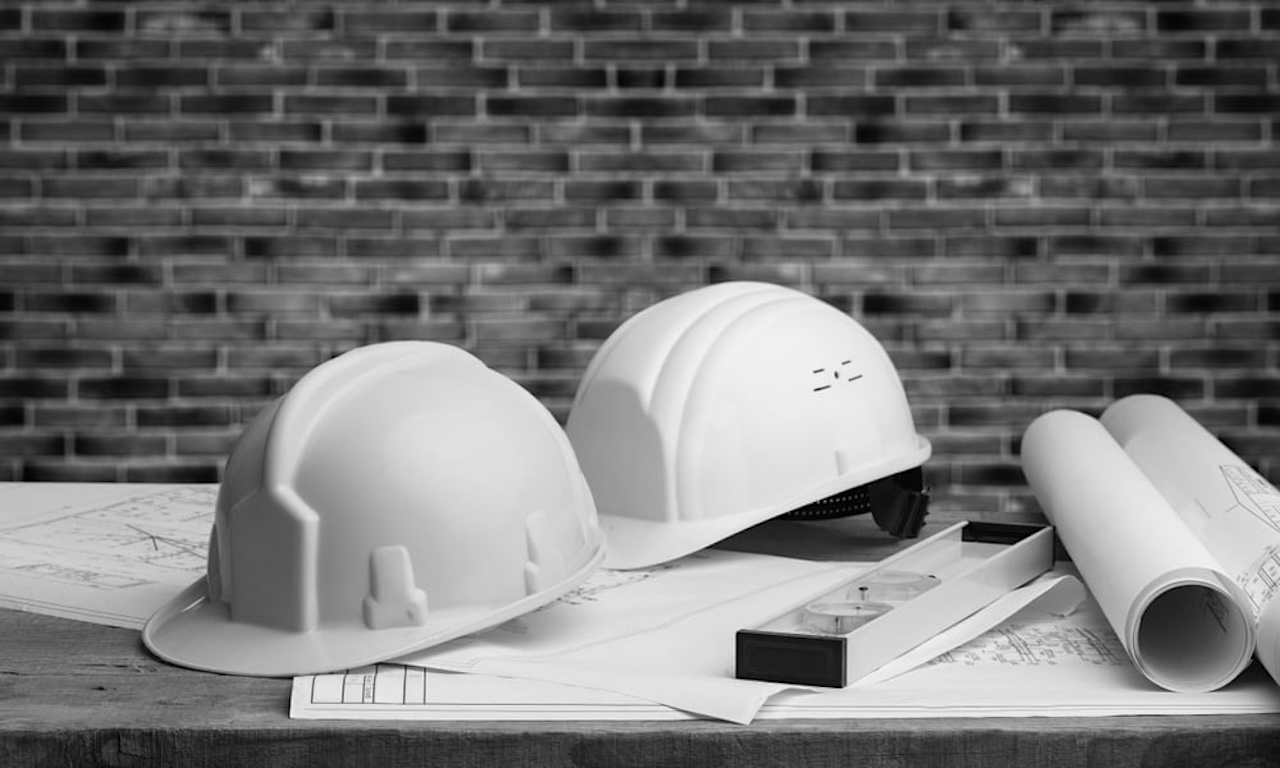

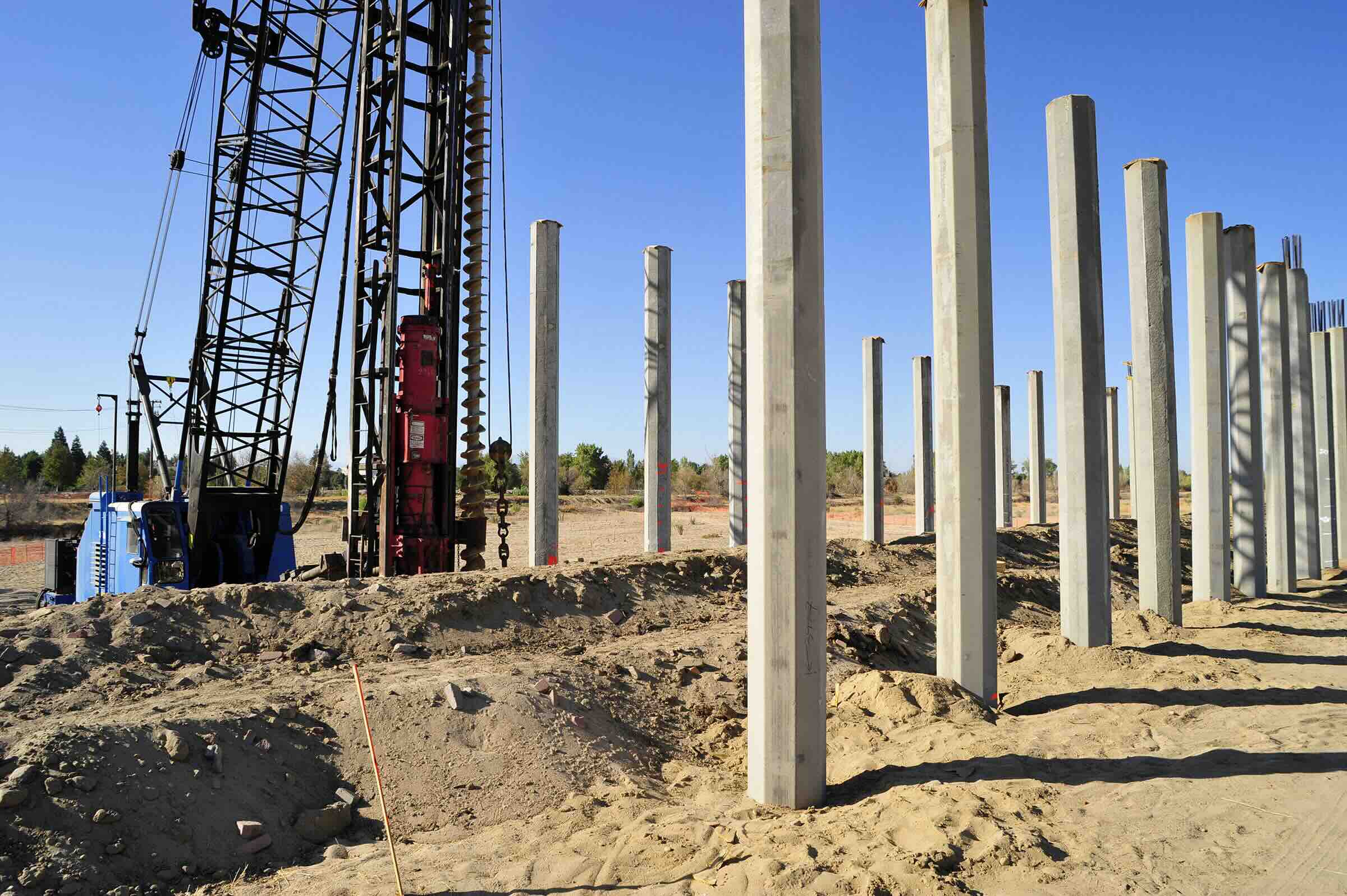
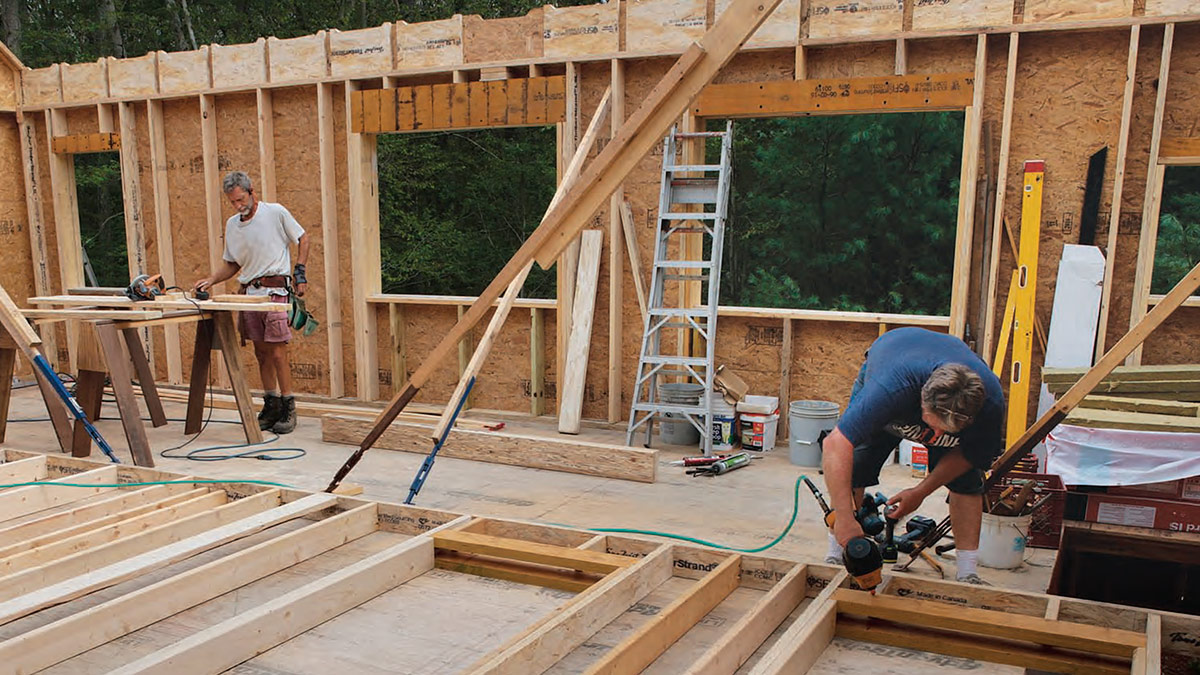
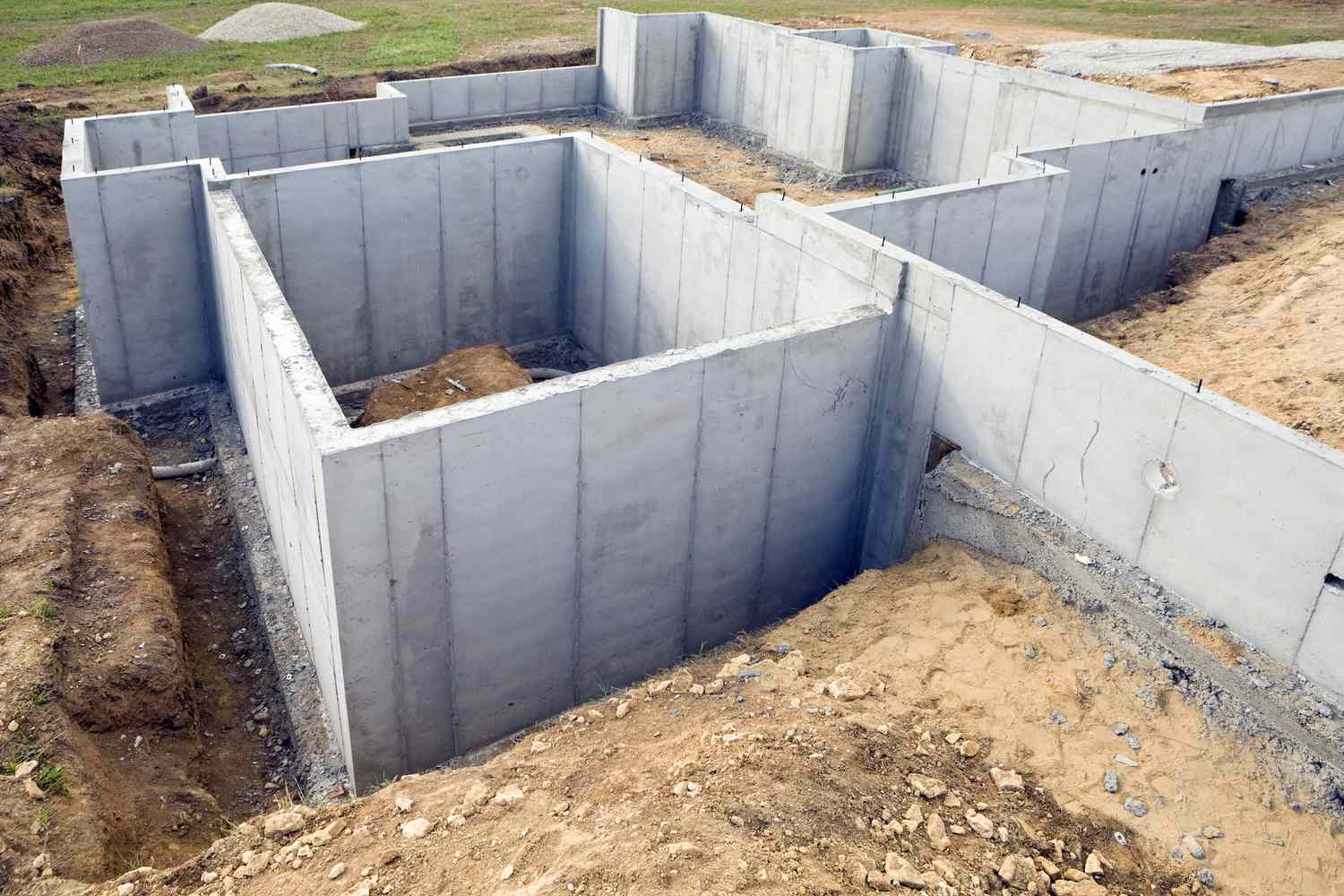
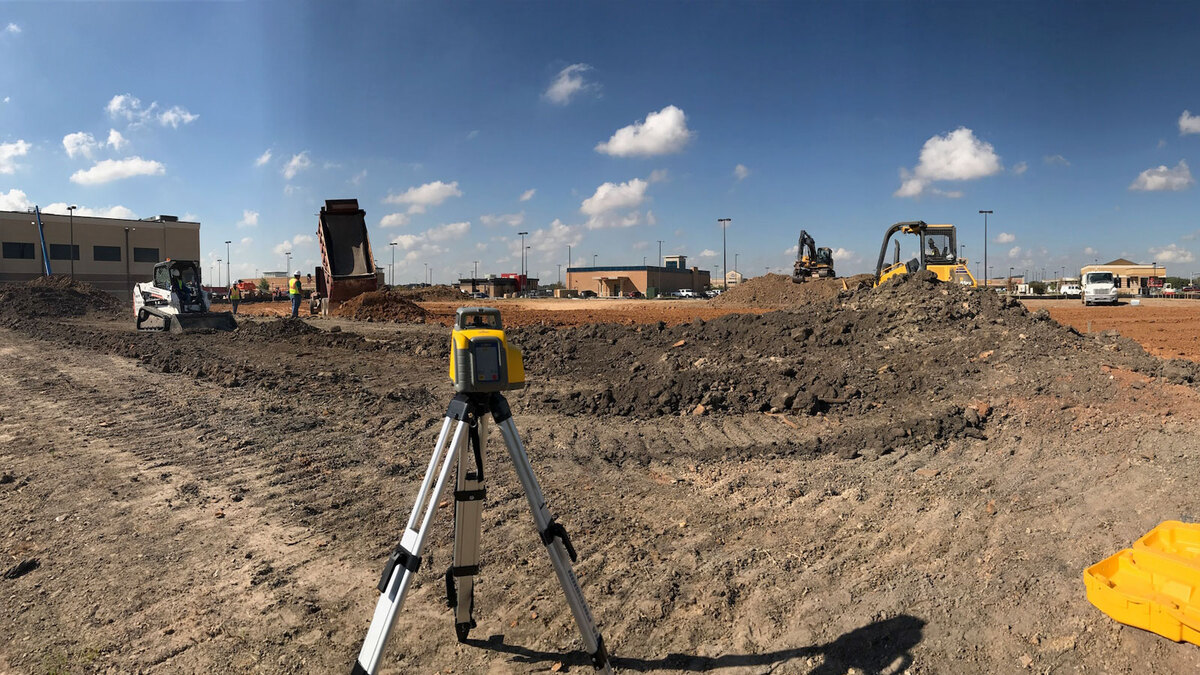
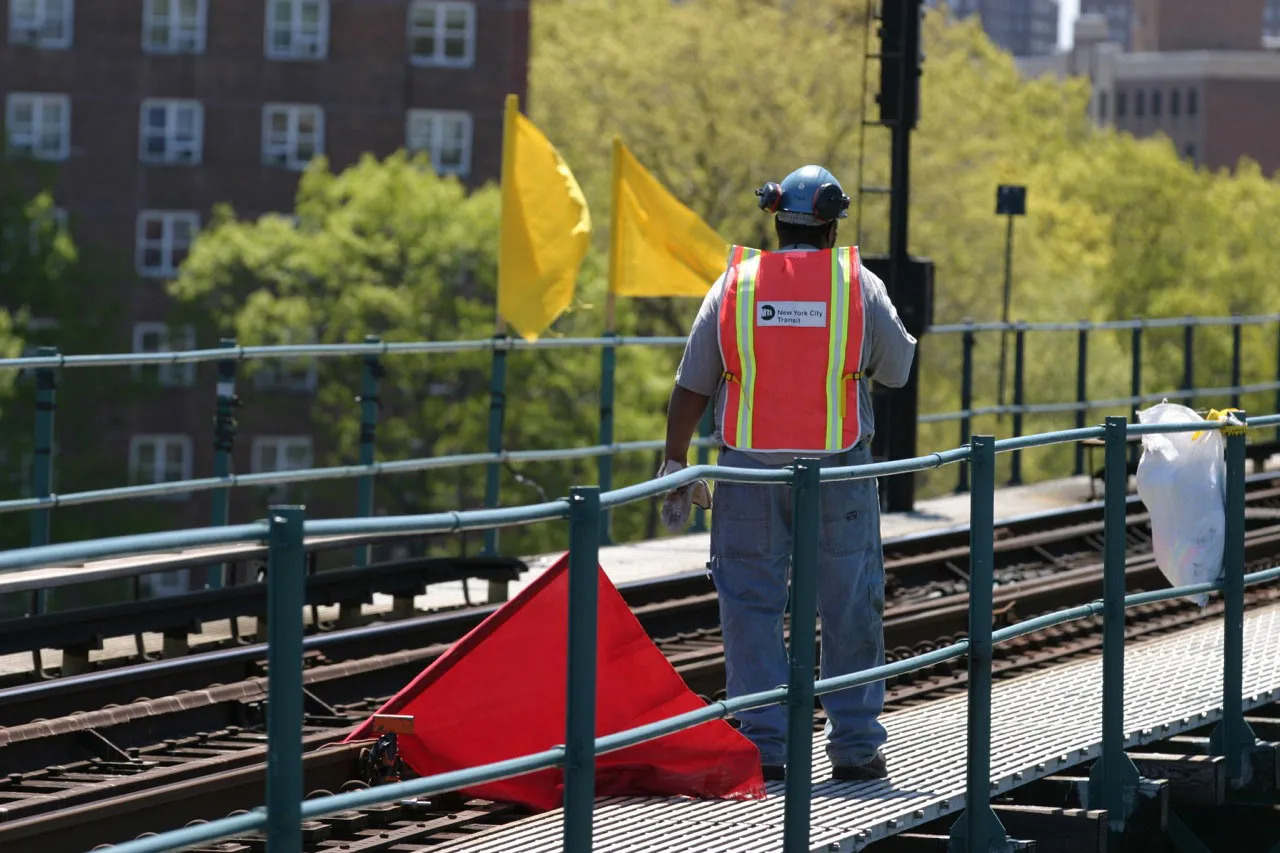
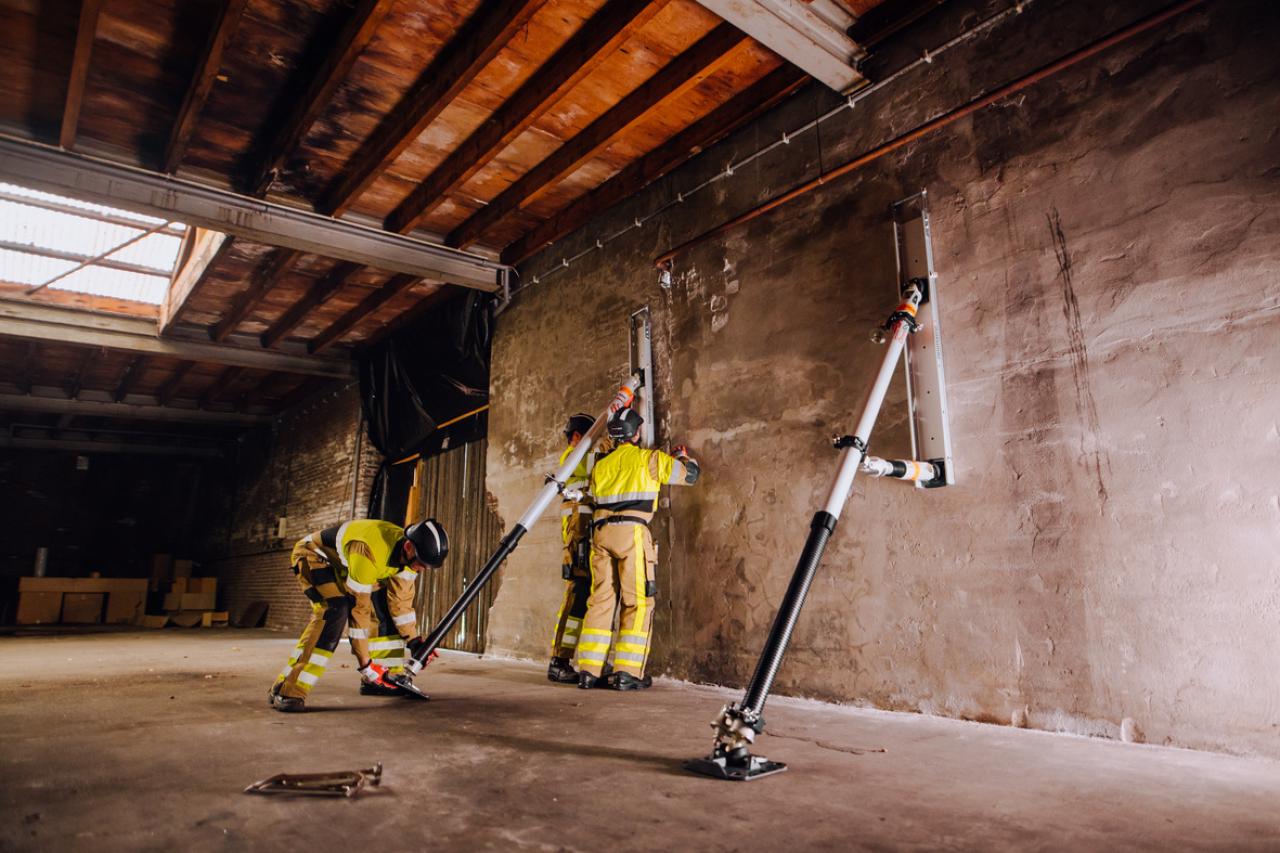

0 thoughts on “What Is A Construction Supervisor”